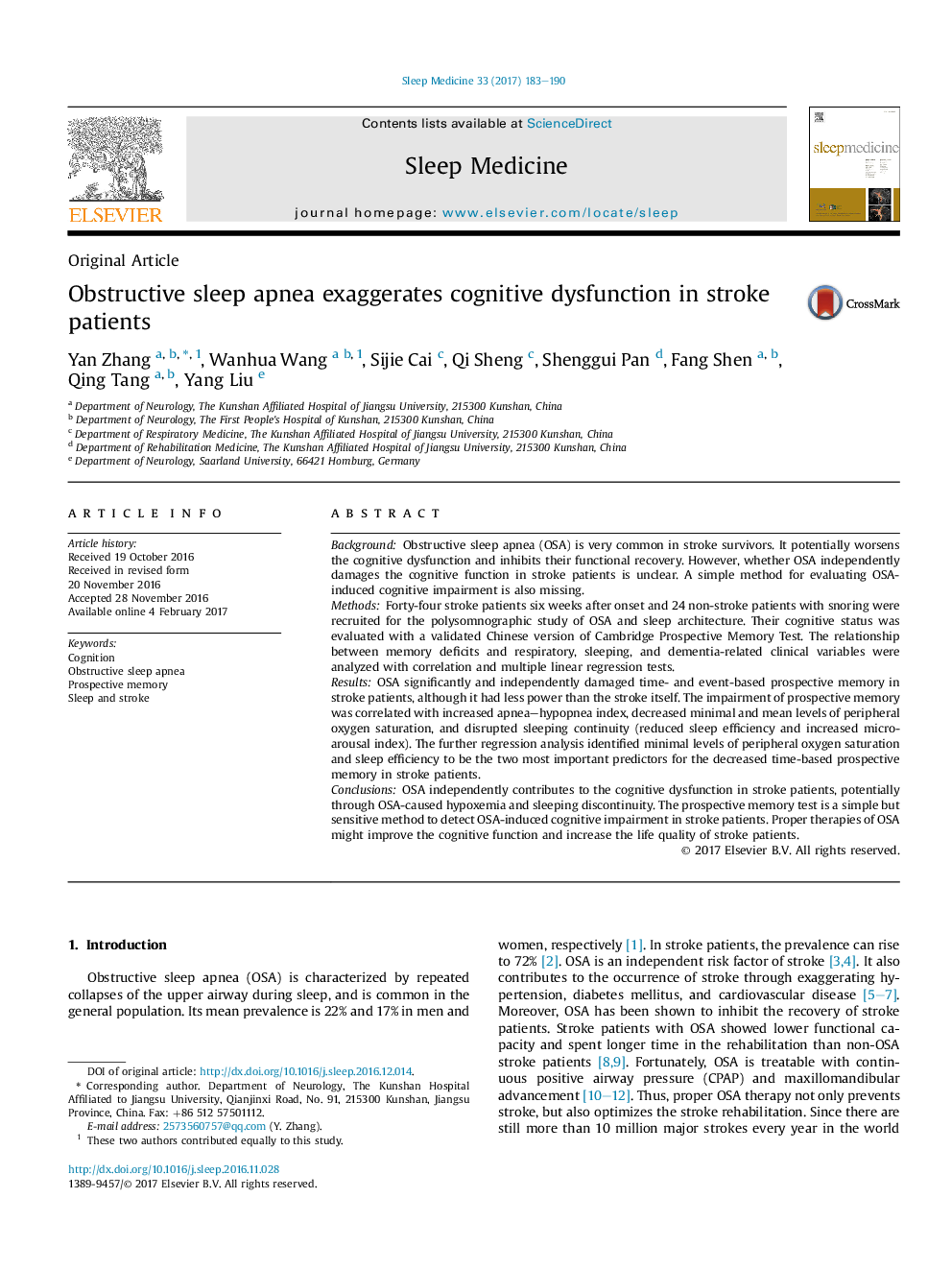| کد مقاله | کد نشریه | سال انتشار | مقاله انگلیسی | نسخه تمام متن |
|---|---|---|---|---|
| 5643763 | 1586476 | 2017 | 8 صفحه PDF | دانلود رایگان |
- Obstructive sleep apnea (OSA) impairs the prospective memory in stroke patients.
- The lowest blood oxygen level plays a major role in OSA-induced memory loss.
- The sleep discontinuity plays an important role in OSA-induced memory loss.
- Prospective memory tests are useful in evaluating OSA-induced cognitive dysfunction.
BackgroundObstructive sleep apnea (OSA) is very common in stroke survivors. It potentially worsens the cognitive dysfunction and inhibits their functional recovery. However, whether OSA independently damages the cognitive function in stroke patients is unclear. A simple method for evaluating OSA-induced cognitive impairment is also missing.MethodsForty-four stroke patients six weeks after onset and 24 non-stroke patients with snoring were recruited for the polysomnographic study of OSA and sleep architecture. Their cognitive status was evaluated with a validated Chinese version of Cambridge Prospective Memory Test. The relationship between memory deficits and respiratory, sleeping, and dementia-related clinical variables were analyzed with correlation and multiple linear regression tests.ResultsOSA significantly and independently damaged time- and event-based prospective memory in stroke patients, although it had less power than the stroke itself. The impairment of prospective memory was correlated with increased apnea-hypopnea index, decreased minimal and mean levels of peripheral oxygen saturation, and disrupted sleeping continuity (reduced sleep efficiency and increased microarousal index). The further regression analysis identified minimal levels of peripheral oxygen saturation and sleep efficiency to be the two most important predictors for the decreased time-based prospective memory in stroke patients.ConclusionsOSA independently contributes to the cognitive dysfunction in stroke patients, potentially through OSA-caused hypoxemia and sleeping discontinuity. The prospective memory test is a simple but sensitive method to detect OSA-induced cognitive impairment in stroke patients. Proper therapies of OSA might improve the cognitive function and increase the life quality of stroke patients.
Journal: Sleep Medicine - Volume 33, May 2017, Pages 183-190
